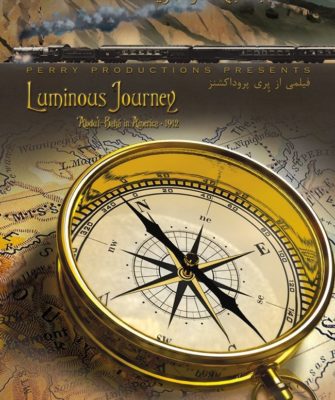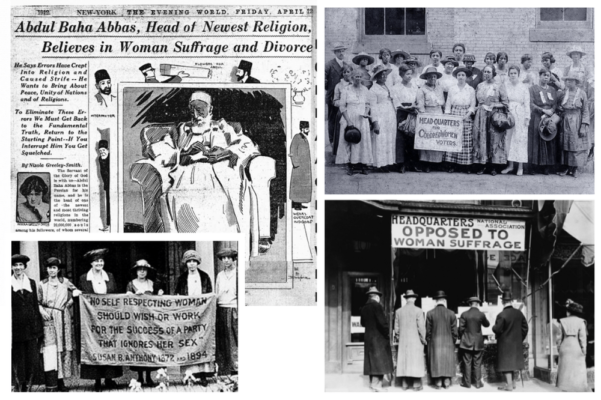



Source: The Promulgation of Universal Peace
20 May 1912 | Metropolitan Temple,
Seventh Avenue and Fourteenth Street, New York
‘Abdu’l-Baha was touring North America in 1912, when one of the issues permeating the social consciousness was the women’s suffrage movement, a decades-long fight to win the right to vote for women in the United States. A few years earlier, the first suffrage march in the United States was held in Oakland, California on August 27. By August 18, 1920, the 19th Amendment was finally ratified, enfranchising all American women with all the rights and responsibilities of citizenship.
‘Abdu’l-Baha spoke: Today questions of the utmost importance are facing humanity, questions peculiar to this radiant century. In former centuries there was not even mention of them. Inasmuch as this is the century of illumination, the century of humanity, the century of divine bestowals, these questions are being presented for the expression of public opinion, and in all the countries of the world, discussion is taking place looking to their solution.
One of these questions concerns the rights of woman and her equality with man. In past ages it was held that woman and man were not equal—that is to say, woman was considered inferior to man, even from the standpoint of her anatomy and creation. She was considered especially inferior in intelligence, and the idea prevailed universally that it was not allowable for her to step into the arena of important affairs. …In reality, God has created all mankind, and in the estimation of God there is no distinction as to male and female. The one whose heart is pure is acceptable in His sight, be that one man or woman. …
The world of humanity consists of two parts: male and female. Each is the complement of the other. Therefore, if one is defective, the other will necessarily be incomplete, and perfection cannot be attained. There is a right hand and a left hand in the human body, functionally equal in service and administration. If either proves defective, the defect will naturally extend to the other by involving the completeness of the whole; for accomplishment is not normal unless both are perfect….
The purpose, in brief, is this: that if woman be fully educated and granted her rights, she will attain the capacity for wonderful accomplishments and prove herself the equal of man… In all human powers and functions they are partners and coequals. At present in spheres of human activity woman does not manifest her natal prerogatives, owing to lack of education and opportunity. Without doubt education will establish her equality with men.


![]()
![]()
Whether you are exploring the Bahá'í Faith or looking to become an active member, there are various ways you can connect with our community.
Please ensure that all the Required Fields* are completed before submitting.